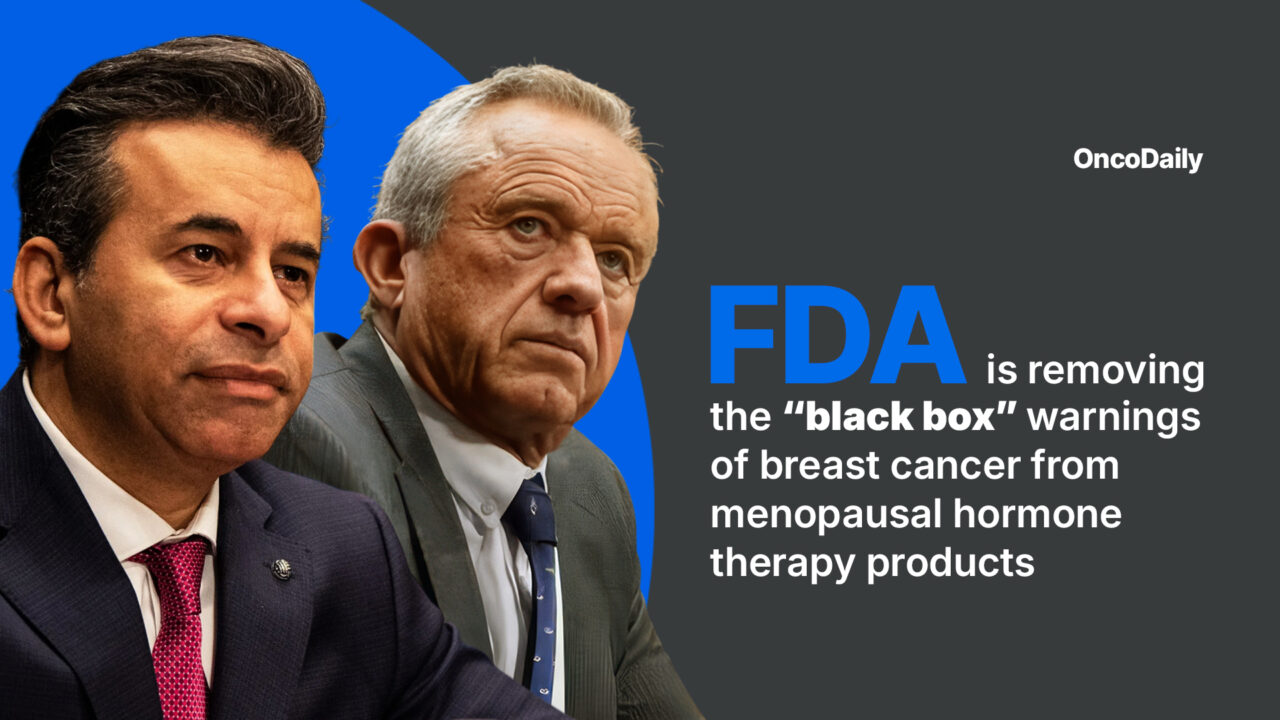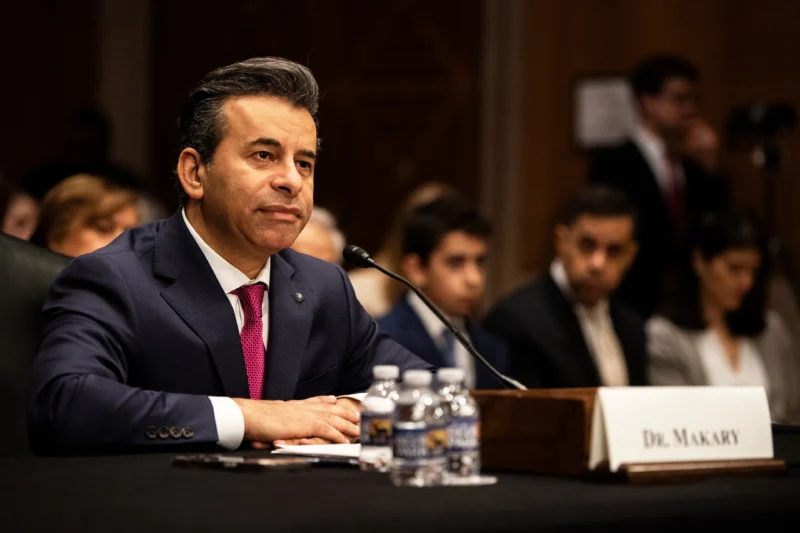Dr. Marty Makary and Robert F. Kennedy Jr. commend a landmark FDA decision following expert review and global broadcast.
In a major policy shift with far-reaching implications for women’s health, the U.S. Food and Drug Administration (FDA) has announced the removal of the long-standing “black box” warnings that associated menopausal hormone therapy (MHT) products with breast cancer, cardiovascular disease, and dementia.
Black Box Warning… Outdated or a Mistake?
The decision — described as “a big day for science and women’s health” — was discussed in a broadcast that quickly gained global attention, featuring Dr. Marty Makary and Robert F. Kennedy Jr. The announcement follows an extensive review by FDA subject matter experts, including leading obstetricians and gynecologists, and the recommendations of an expert advisory panel.
“The FDA piled on to that bandwagon thinking… and issued a black box warning slapping the scary warning across all estrogen products,” said Dr. Marty Makary. “And so today, we are announcing that the FDA is initiating action to remove the black box warnings of breast cancer, of cardiovascular disease, of possible dementia on estrogen products — all of them, systemic and local.”
Dr. Makary emphasized that while the most alarming warnings are being withdrawn, essential safety notes remain in place.
“There will still be a warning that if you are taking estrogen alone and you have a uterus, there’s an increased risk of endometrial hyperplasia, which can cause endometrial cancer. That’s why progesterone is recommended to go with estrogen if you still have a uterus,” he explained.
“That other scary warning is now just going to go in the text of the insert. It’s a big decision by the FDA — one based on rigorous science and expert review.”
A Comment on Science From RFK Jr
Adding to the discussion, Robert F. Kennedy Jr. underscored the strong body of evidence now supporting hormone therapy when appropriately prescribed:
“There’s recently been a review of the 30 largest studies — 26,000 women — showing that if you start taking estrogen before age 60, it actually dramatically reduces the risk of breast cancer,” he said. “Not only that, but it cuts the risk of heart attack by 50%, reduces Alzheimer’s risk by 35%, cognitive decline by up to 60%, and bone fractures by 50%. It even increases happiness and life satisfaction while reducing depression.”
Kennedy highlighted the dramatic decline in hormone therapy use since the early 2000s, following publication of the 2002 Women’s Health Initiative (WHI) study.
“Before that deceptive study came out, one in four American women were on this therapy. Today, it’s one in twenty,” Kennedy said. “There are 80 million American women who could benefit profoundly from hormone replacement therapy. That black box warning frightened people — it should never have been there. Now, we are applying gold-standard science and taking it off.”
Bottomline and Caution
While this regulatory adjustment is the main topic of discussion for the medical community as well as the public in general, the long-term obligations and real-world effects remain uncertain. It is still too early to conclude whether this will improve outcomes, expand appropriate use or bring unforeseen challenges. Therefore, caution should be taken with estrogen containing products, and just as any medication, they should be used only after consulting and receiving approval from a physician specialist.
You can read about the latest FDA approvals here
Written by Nare Hovhannisyan, MD




